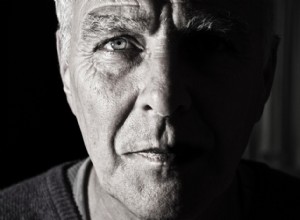سيكون بخس هائل أن نقول إن عام 2020 لم يكن الطريقة التي تصورها أي منا للسنة الأولى من العقد الجديد.
لا تزال الآثار طويلة المدى لوباء COVID-19 في الظهور. سوف تمر شهور ، إن لم يكن سنوات ، قبل أن نعرف كيف أثر الوباء ليس فقط على اقتصادنا ومعاييرنا الثقافية ، ولكن أيضًا على صحتنا الجسدية والعقلية.
على الرغم من أنه من المهم التفكير في الآثار السلبية للوباء ، إلا أنه من المفيد أيضًا التفكير في الجانب المشرق المحتمل. في أعقاب الأحداث الصادمة ، يختبر العديد من الأشخاص تغيرًا نفسيًا إيجابيًا على شكل شيء يسمى النمو اللاحق للصدمة.
مفهوم النمو اللاحق للصدمة موجود منذ قرون. ولكن لم يكن الأمر كذلك حتى منتصف التسعينيات عندما أطلق عالما النفس لورانس كالهون ، دكتوراه ، وريتشارد تيديشي ، دكتوراه ، من جامعة نورث كارولينا في شارلوت ، اسمًا لهذه النظرية.
يحدث النمو اللاحق للصدمة في أعقاب الصدمة أو الأزمة. يقول تيديشي:"ما تفعله أحداث الحياة الصعبة هذه هو تحدي معتقداتنا الأساسية حول مختلف الأشياء التي افترضنا أنها صحيحة بشأن أنفسنا وحياتنا". "الصراع مع تلك المعتقدات الأساسية وكيف تم تحديها يمكن أن يؤدي إلى تغييرات تسمى النمو اللاحق للصدمة. "
تجدر الإشارة إلى أن النمو اللاحق للصدمة لا يجعل بالضرورة الحدث المعني يشعر بصدمة أقل. لا يزال الأشخاص الذين يعانون من نمو ما بعد الصدمة يعانون من تحديات هائلة ، بما في ذلك اضطراب ما بعد الصدمة (PTSD). ومع ذلك ، يمكن أن يساعد النمو اللاحق للصدمة شخصًا ما على إعادة تأطير أو التعامل بشكل أفضل مع الآثار اللاحقة لتجربة مؤلمة.
من أجل تجربة النمو اللاحق للصدمة ، يقول تيديشي إن شخصًا ما يجب أن يختبر تغييرًا في واحد على الأقل من خمسة مجالات أساسية:
- تحسين العلاقات. يصبح المرء أكثر تعاطفا أو أكثر تعاطفا أو يكون لديه علاقات شخصية أوثق.
- مزيد من الثقة في نقاط القوة والقدرات لدى المرء - لا سيما عندما يتعلق الأمر بإدارة الظروف الصعبة.
- أولويات وإمكانيات الحياة الجديدة. هناك تغيير ملحوظ عن الطريقة التي كان يقوم بها شخص ما بالأشياء من قبل.
- تقدير أكبر للحياة. يشعر الناس بمزيد من المتعة من "الأشياء الصغيرة" التي اعتادوا أخذها كأمر مسلم به.
- التغيير الروحي أو الوجودي. يطور الناس فهمًا أعمق لما يعنيه أن تكون إنسانًا.
في حين أنه من المستحيل التنبؤ بعدد الأشخاص الذين سيعانون من نمو ما بعد الصدمة في أعقاب جائحة COVID-19 والأزمات الأخرى التي ظهرت في عام 2020 ، تشير بعض الأبحاث إلى أن التغيير النفسي الإيجابي أمر لا مفر منه ، على الأقل في جزء من السكان.
وجدت دراسة استقصائية أجريت على أكثر من 800 من سكان هونغ كونغ أنه في أعقاب وباء السارس 2002-2003 ، أفاد 60 في المائة من الناس أنهم يهتمون أكثر بمشاعر أفراد أسرهم ، بينما أفاد حوالي الثلث أنهم شعروا بمزيد من الدعم بشكل عام وأفضل استعدادًا لمناقشة مشاعرهم بصراحة. مع العائلة والأصدقاء. Two-thirds of respondents said they paid more attention to their mental health, and around 40 percent said they spent more time resting, relaxing or exercising.
Whether you’re dealing with trauma related to the pandemic or simply a life event that shook you to your core, search for post-traumatic growth. You may be able to arm yourself with the tools needed to not just survive, but thrive.

Abigail Hardin, Ph.D., a rehabilitation psychologist at Rush University Medical Center in Chicago, studied under psychologists Richard Tedeschi, Ph.D., and Lawrence Calhoun, Ph.D., pioneers in the field of post-traumatic growth.
1. We would never wish this (the traumatic experience) on anyone. But at the same time, what wisdom have you discovered as a result of this experience?
2. List three personal strengths you’ve been relying on through this challenging time. In what ways are you using these strengths effectively right now? Have you noticed any new strengths that have surprised you?
3. What relationships in your life are important to you right now? Have any new connections formed or have old connections strengthened in a way that has surprised you?
4. How have your spiritual beliefs or practices changed during this challenging time?
5. What was most important to you before this challenge began? Compare that to now. What has changed? Are there values or activities that are now a higher priority for you?
6. Before this challenge, it’s possible your life was on a different path than it is now. If you hadn’t had this challenging experience, what about your current life would never have happened? What would you be missing if you never had this fork in the road?

Looking to support a close family member or friend in the wake of a traumatic event? Consider becoming what psychologist Richard Tedeschi, Ph.D., co-creator of the post-traumatic growth model, calls an expert companion.
Expert companions truly listen to what people are going through without giving excessive advice. They don’t offer platitudes or easy answers. They listen to someone’s story not out of curiosity, but because they genuinely care. They stick around for the long haul and demonstrate a true commitment to the relationship.
And, most importantly, they’re able to tolerate ambiguity. “In a lot of ways, they might feel like there’s nothing they can do,” Tedeschi says. “But by being a good companion and listener—and being consistent—they’re actually doing a lot.”

When Allie Schmidt, 30, was in her mid-20s, she couldn’t move her pinky. She didn’t think anything of it until a year- and- a-half later when she also couldn’t move her left thumb. Schmidt saw a neurologist, who concluded she most likely has amyotrophic lateral sclerosis (ALS)—commonly known as Lou Gehrig’s disease.
“When it happened, I was 26 and thought I had my life completely planned out,” says Schmidt, who lives in Nashville, Tennessee. “I ended up really having to reevaluate what was important in my life.”
Schmidt always dreamed of moving to Portland, Oregon, to work for Nike. But following the diagnosis, she realized it was best to be near family in Nashville. She traded in her corporate sports marketing job for one with a shorter commute and prioritized finding a compassionate and stable life partner she could start a family with.
“When I found out I might not have as much time on earth as everyone else, I realized that having a child was going to be the No. 1 most important thing I wanted,” she says.
Schmidt and her husband married in May 2019. In December 2019, they welcomed baby boy Asher into the world. A few months later, in March 2020, she launched Disability Dame, a blog designed to support moms coping with disability and chronic illness.
“I never would’ve thought that five years after realizing I might’ve had a terminal illness that I would wake up so excited to take on the world,” Schmidt says.

Q:Do any people not experience post-traumatic growth following trauma?
A: People who have already experienced post-traumatic growth in the past or have somehow adjusted to life extremely successfully are not likely to experience post-traumatic growth. These are like the Olympic athletes of human living and adjustment. They really have it together.
And then there are those who are kind of the opposite. They have so much difficulty managing things in life that they can’t deal with the basics of traumatic events. They’re struggling to survive and they can’t get beyond that sort of survival mode.
Those are the two extremes of people who don’t experience post-traumatic growth. The vast majority of people are somewhere in the middle.
Q:Are certain people more likely to experience post-traumatic growth than others?
A: Some people are more able to seek out support and connection from others, which is very useful in the post-traumatic growth process. That kind of person may be better positioned.
People who are more active in how they cope with things and those who are willing to try new things—maybe experiment or do something that’s a little novel in order to manage their situation—are also going to be a little bit more likely to experience post-traumatic growth.
Q:Are certain life experiences more likely to lead to post-traumatic growth?
A: Almost any kind of traumatic event can lead to post-traumatic growth. What we consider a traumatic event is not a specific situation so much as something that has challenged someone’s core beliefs and led them to reconsider things like, What kind of person am I? What kind of future do I have? and What kind of world do I live in?
We’re not so much emphasizing the type of event—it’s what happens after the event that’s important.






